Alan Ritchson, who stars in the new movie Ordinary Angels, discusses multilayered acting and building an onscreen relationship with Hilary Swank.
SUMMARY
The film follows a hairdresser named Sharon who helps a struggling widower, Ed, as his daughter needs a liver transplant.
The dynamic between Sharon and Ed is tension-filled but non-sexual, showcasing the power of platonic relationships in aiding each other.
Despite hardships, the movie aims to inspire faith in humanity by emphasizing the value of kindness and community support.
The new faith-based drama Ordinary Angels tells the story of how a complete stranger changed the life of a widowed father working to save his sick daughter. Based on a true story, the film follows Sharon Stevens, a Louisville hairdresser struggling with addiction, who finds a new purpose in helping Ed Schmitt after learning about his tragic situation in the newspaper.
The film stars Million Dollar Baby‘s Hilary Swank as Sharon, Reacher‘s Alan Ritchson as Ed, and Emily Mitchell as Ed’s ill youngest daughter, who’s made a name for herself in films like Priscilla and Women Talking.
Ritchson’s character is the epitome of the gruff man with a heart of gold archetype, repeatedly struggling to accept the help he so desperately needs from Swank’s character as he works to get his daughter Michelle a liver transplant.
The film follows the evolution of both Sharon and Ed throughout, as she works to overcome her alcoholism and Ed learns to let down his walls with other people. Though it’s a drama that broaches difficult subject matters, Ordinary Angels is ultimately a film that aims to inspire faith in humanity and espouse the importance of kindness and community.
Screen Rant recently interviewed Alan Ritchson to discuss playing such a multi-layered role, filming an onscreen dynamic with Swank in Ordinary Angels, and bucking the trend of forced romance between a male and female lead.
Alan Ritchson Talks Ordinary Angels
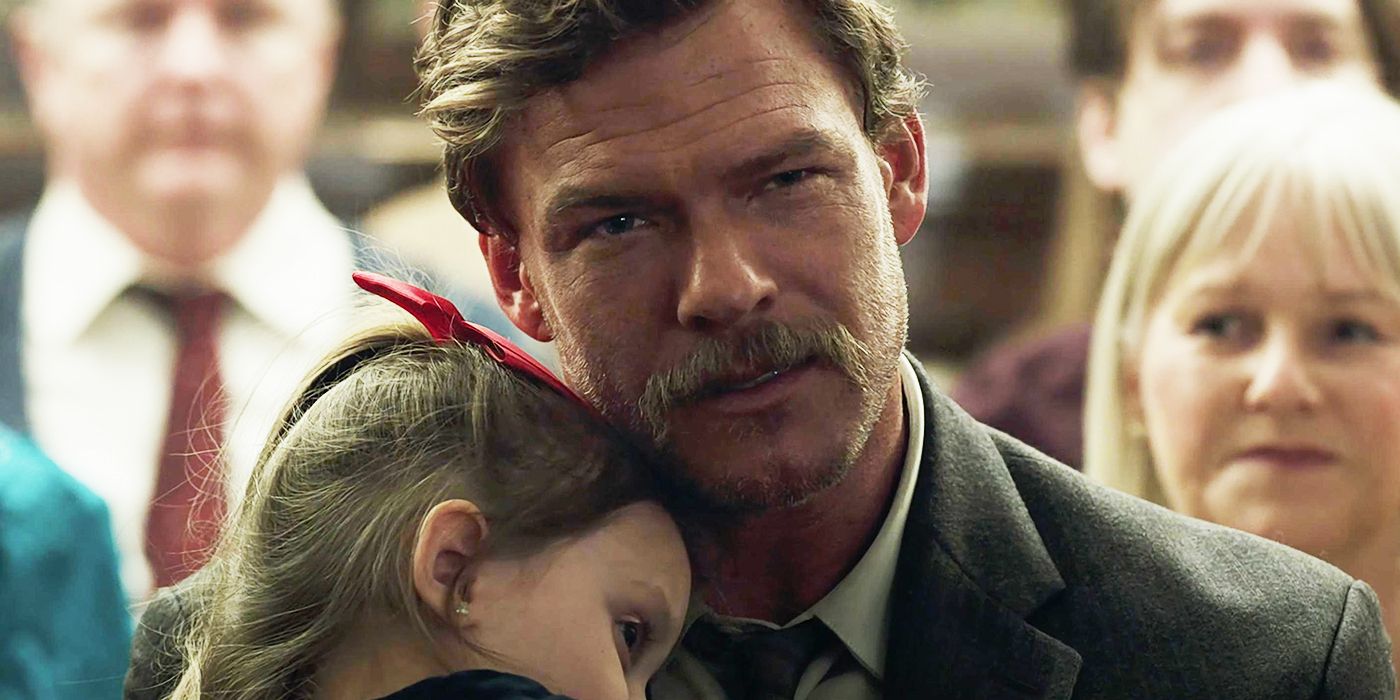
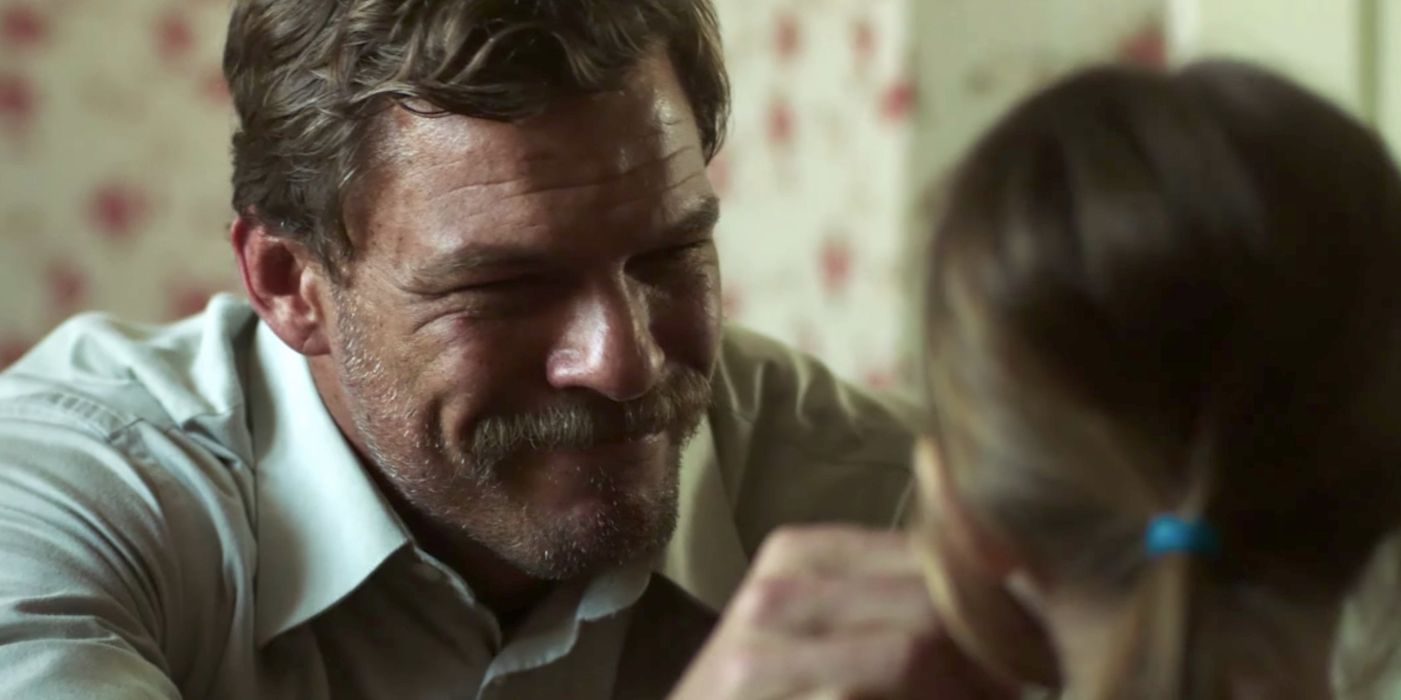
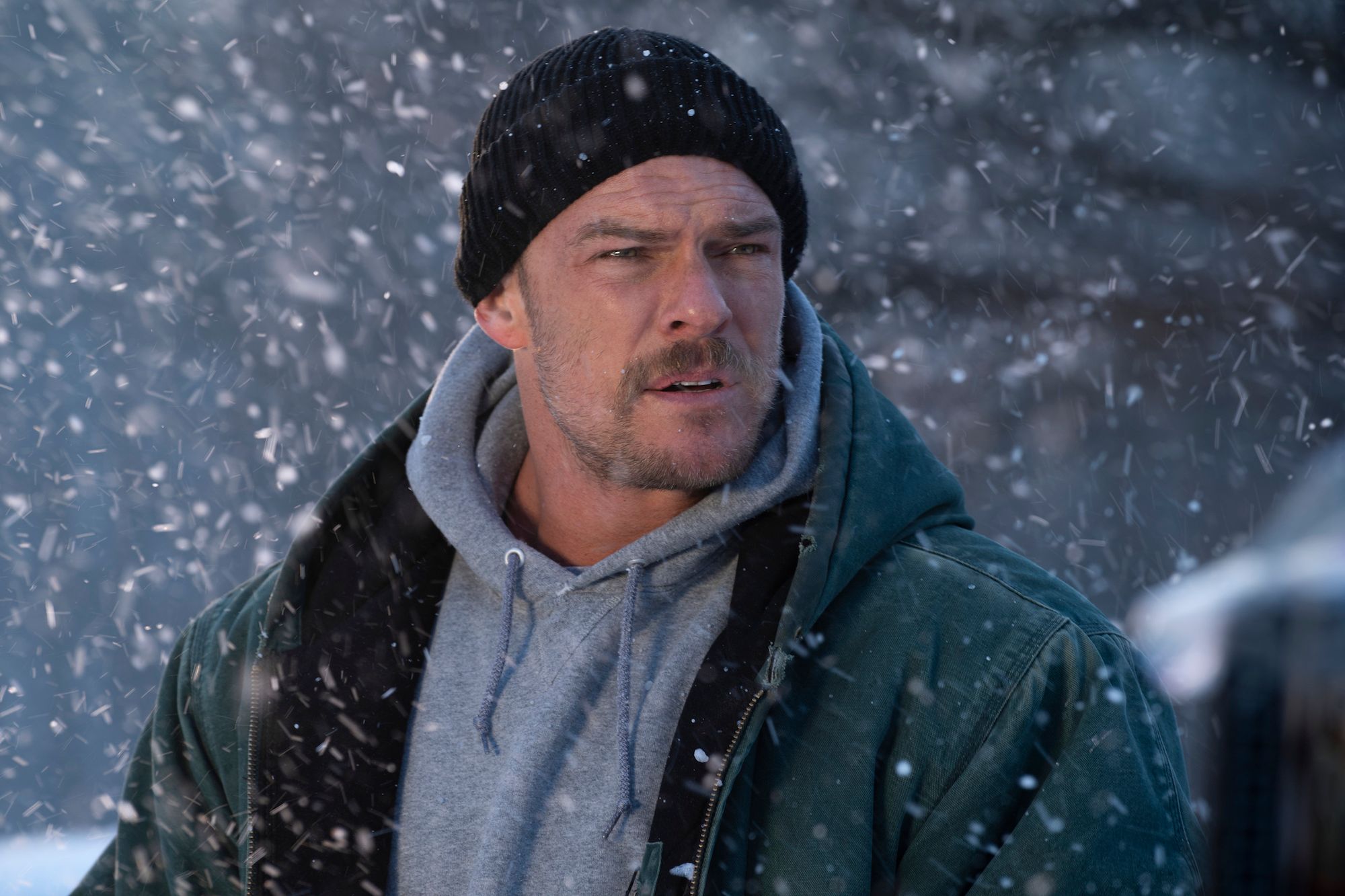
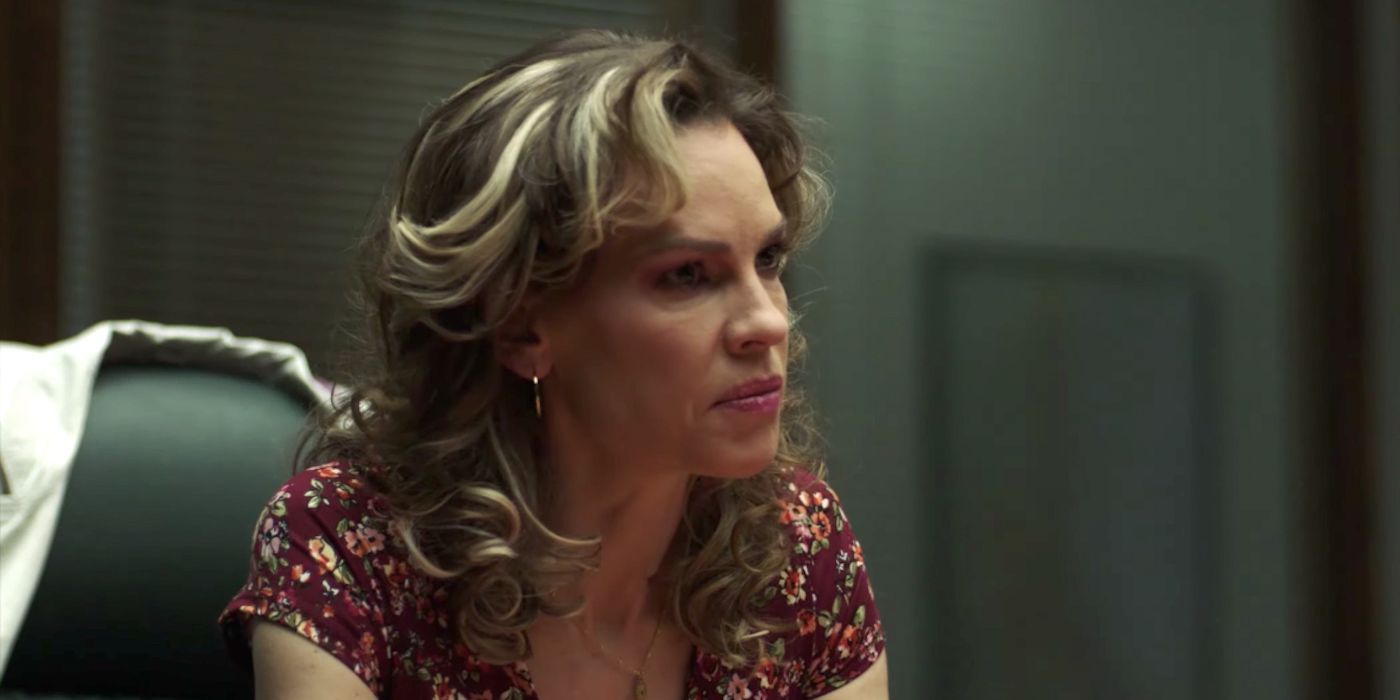
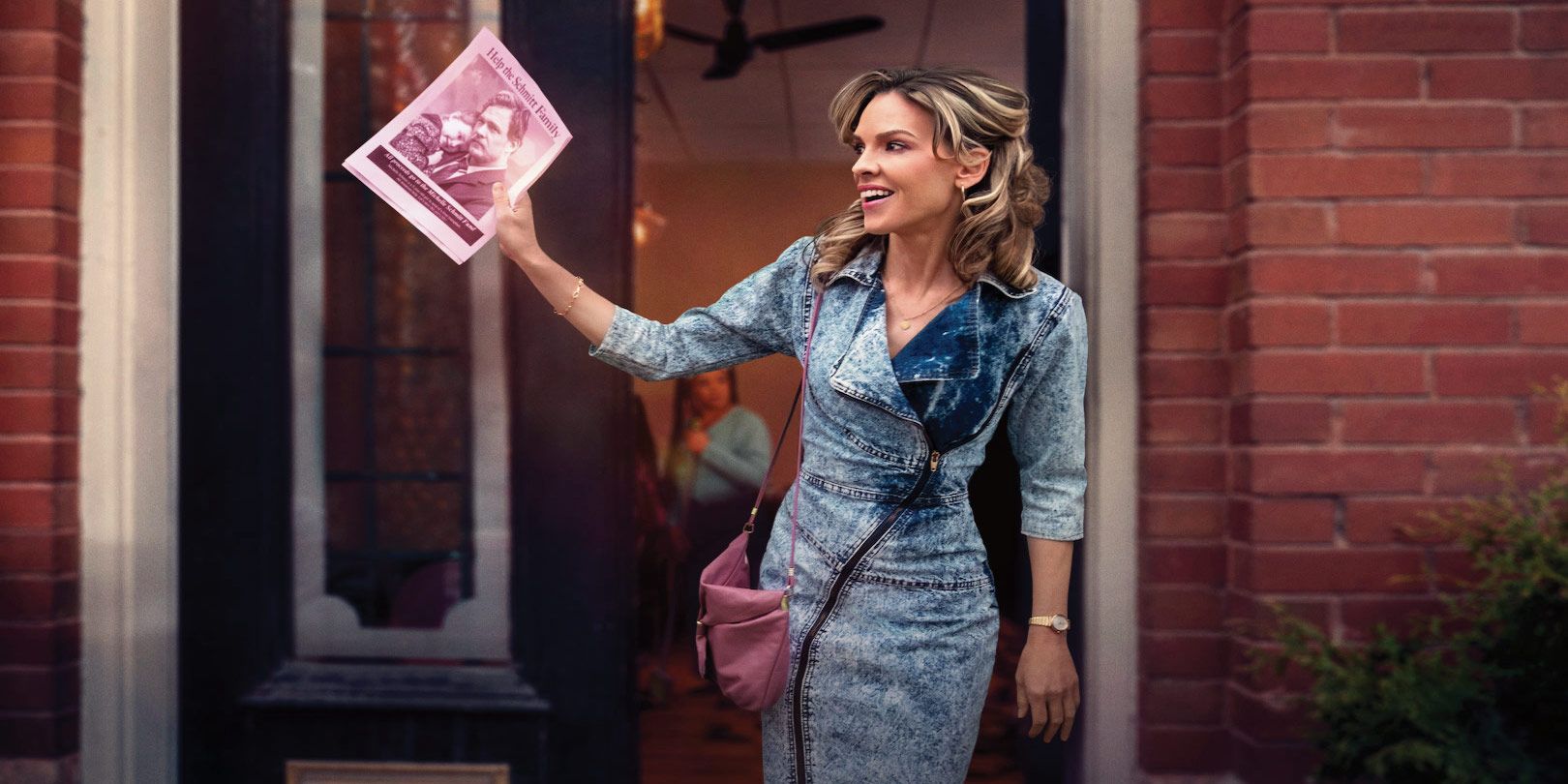
Screen Rant: Something that really stood out to me about your acting in this film is a lot of your character’s scenes involve you experiencing these really intense emotions while simultaneously tamping them down and repressing them to keep a tough guy exterior. From an acting standpoint, what was that dual layer of portrayal like for you?
Alan Ritchson: Oh, that’s a great question. I mean, that is just being human; there are no humans that try to cry. When we are having an experience and we have to have some outburst of laughter where our cheeks open up or we shed a tear, 99% of us are trying really hard to sort of suppress, because we are always looking for some homeostasis and some regularity in our community.
So that’s the real work of being an actor is to try not to, and some of these situations it was really difficult to keep it in because my job is to imagine bringing these to life. To feel all the things that happen to the real Ed Schmidt in these moments, and when I look down at little Emily [Mitchell] in the hospital bed and they’ve got makeup on her and the IV hooked up to her, and this all looks very real to me. I’ve got three boys, I can imagine one of my kids going through this and how it would just rip my heart out and I wouldn’t be able to contain those emotions.
So it was hard to try to keep it in sometimes. But thank you for the compliment. It was difficult work keeping it multilayered like that, but I think it’s really the job is to try to contain it while experiencing those in a very real way.
You are very welcome. It was wonderful. The dichotomy between Ed and Sharon’s personalities creates this really unique sort of dynamic between the two of them. What was it like forming that unique relationship with Hilary on screen?
Alan Ritchson: Oh, that’s interesting. Yeah. Look, there’s a lot of tension between Ed and Sharon, played by myself and Hillary Swank. A lot of times I think we’ve limited our scope of tension to a sexual narrative. So we expect in movies or TV or stories, if there’s tension between a guy and a girl, it has to be fueled by something sexual, and I love that there was none of that in this story.
This is simply a platonic thing, but the tension was real because you’ve got a guy who’s a lone wolf who doesn’t know how to ask for help, who doesn’t have the resources to help himself and is in desperate need of somebody to come along and rescue him from himself in that way.
Then you’ve got this broken toy who’s far from perfect, doesn’t have the resources she needs either, but is just going to help however she can and is an angel in his life because she’s a miracle worker.
So there’s this push-pull between how much do I want your help, versus how qualified are you to help me, versus how much help do you really need and who else is going to do it?
That’s what makes the movie so compelling and it makes this true story so compelling, is that despite that tension, they found a way to love each other and help each other. That is our story. That’s the takeaway, is that it’s not that we help when there’s no tension; we’re called to just help no matter what.
More About Ordinary Angels

Based on a remarkable true story, ORDINARY ANGELS centers on Sharon (Hilary Swank), a fierce but struggling hairdresser in small-town Kentucky who discovers a renewed sense of purpose when she meets Ed (Alan Ritchson), a widower working hard to make ends meet for his two daughters.
With his youngest daughter waiting for a liver transplant, Sharon sets her mind to helping the family and will move mountains to do it. What unfolds is the inspiring tale of faith, everyday miracles, and ordinary angels.